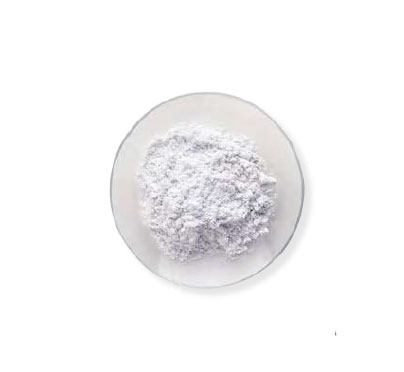Antimonium Tart.
Tartarus stibiatus syn. Antimonium tartaricum
Origin
Prepared by combining potassium tartrate with oxide of antimony, which is formed by the reaction of moist air and antimony.
Background
Traditionally used for medicinal purposes in the West for treating intestinal worms and fungal infections, and as an expectorant.
Preparation
The remedy is prepared by triturating antimony potassium tartrate with lactose sugar and then repeatedly diluting and succussing the mixture.
Common Names
Antimony potassium tartrate, tartar emetic.
Prepared by combining potassium tartrate with oxide of antimony, which is formed by the reaction of moist air and antimony.
Background
Traditionally used for medicinal purposes in the West for treating intestinal worms and fungal infections, and as an expectorant.
Preparation
The remedy is prepared by triturating antimony potassium tartrate with lactose sugar and then repeatedly diluting and succussing the mixture.
Common Names
Antimony potassium tartrate, tartar emetic.

ANTIMONY POTASSIUM TARTRATE
This compound
is commonly used as an insecticide and fix to bind
dyes to textiles and leather.
Key Symptoms
loud rattling of mucus in the chest and a suffocating sensation; increasing weakness; dislike of physical examination; lack of thirst-
Alchemists called this compound "tartar emetic," and it was traditionally
prescribed as a powerful emetic. Known as the "prince of evacuants," it caused
severe vomiting and was taken to expel intestinal worms. The remedy Antimonium
tart. was proved in various separate trials by Drs. Hahnemann, Stapf, and Hencke,
and published in Allen's Encyclopedia of Pure Materia Medica (1874–79). It is
commonly prescribed for strength-sapping illness in the young or elderly.
Remedy Profile
Antimonium tart. is appropriate for rather attention-seeking people who respond well to rest, comfort, and reassurance. The remedy also suits children who tend to complain unless they are carried around.Illness often exhausts these individuals, making them feel restless, generally apathetic, and drowsy. Their energy levels may be so low that they are unable to cough up mucus and seem in danger of suffocating in their own secretions. They become irritable and averse to being bothered or disturbed by others, and dislike being touched or examined.
Typical symptoms include a lack of thirst, and profuse, cold sweat. Antimonium tart. is used for chest complaints, such as whooping cough, that are marked by the sound of mucus rattling in the chest. It is also given for headaches, nausea and vomiting, and skin problems such as acne, impetigo, and chicken pox.
Respiratory illness
Symptoms: Severe respiratory infection or chronic bronchitis with wheezing and rattling in the throat and chest due to a build-up of mucus. Coughing up mucus becomes difficult due to severe fatigue. Fits of coughing may alternate with gasping or rapid, shallow breathing accompanied by a sensation of suffocation. Symptoms may be aggravated by irritability or anger.Symptoms better: For cold air; for sitting up; for coughing up mucus.
Symptoms worse: For warmth; for damp and cold; for lying down; for movement.
Whooping cough
Symptoms: Breathlessness and coughing spasms primarily in infants, followed by sleep or nausea and vomiting. Mucus causes congestion and a rattling sound in the chest.Symptoms better: For sitting up; for coughing up mucus; for vomiting.
Symptoms worse: For warmth; for being too hot or cold; for lying down; for movement; for tantrums; for milk.
Nausea
Symptoms: Persistent nausea with trembling, weakness, and fainting. The nausea seems to center in the chest or may be felt as a weight on the chest; it may be accompanied by coughing. There may be vomiting, ineffectual retching, and a thick, white coating or red streaks on the tongue.Symptoms better: For cold air; for sitting up; for belching; for vomiting.
Symptoms worse: For warmth; for damp and cold; for lying down; for movement.
Skin conditions
Symptoms: Pustular skin eruptions that leave a purplish mark when healed. There may be warts, or acne with pea-sized pustules. Small, fluid-filled blisters and reddened skin may be caused by impetigo.Symptoms better: For cold air; for sitting up.
Symptoms worse: For bathing in cold water; in the evening; for lying down.
Chicken pox
Symptoms: Large, blistering, bluish skin eruptions that leave a purple scar. The remedy is particularly apt when the skin symptoms have not developed strongly, but associated chest or digestive symptoms have appeared, such as a chesty cough with rattling mucus, or diarrhea. The tongue is coated white, and there may be extreme irritability.Symptoms better: For cold; for coughing up mucus.
Symptoms worse: For warmth; for bathing in cold water; for becoming heated in bed; in the evening; for lying down.
Headaches
Symptoms: Pain as if a tight band is constricting the head, heightened by coughing. There may be weariness, and a longing to close the eyes.Symptoms better: For open air; for bathing in cold water; for movement.
Symptoms worse: For warmth; at night; in the morning; for overeating.
Apis »
© 2025 KnowHomeopathy | All rights reserved